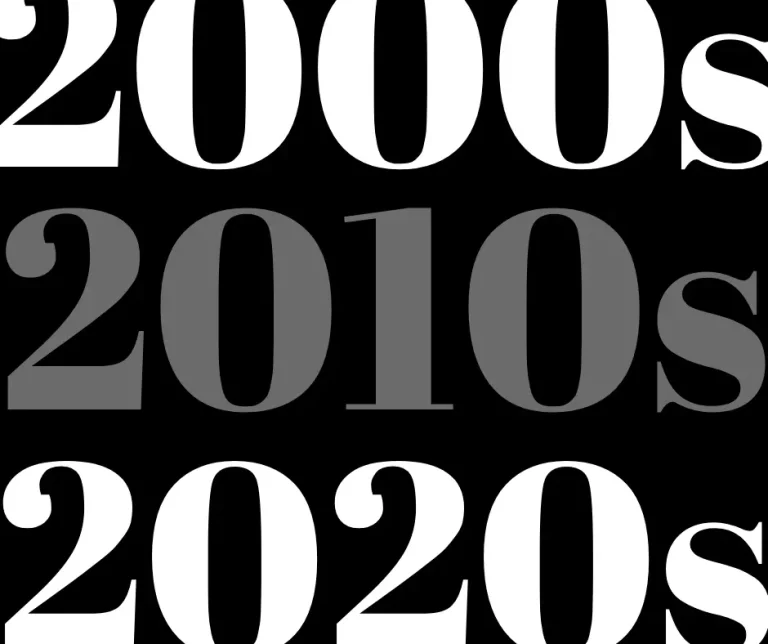Assume we’re traveling through time, leaping decades ahead and landing in a completely different century. We’re in the year 2100, at the start of the twenty-second century.
Yes, the twenty-second century is on the way. Its years will all begin with the number 21 and end in the year 2199. We are currently in the twenty-first century, yet the years begin in the number twenty. And they all started with 19 in the twentieth century, and 18 in the nineteenth, and so on.
A bit of history
It’s difficult to recall this, especially when going back a few hundred years, which is why we sometimes hear people say things like “16th century” (which should relate to years beginning with 15) when they really mean “1700s,” which plainly refers to years beginning with 16. People frequently mix up the “hundreds” and “century” forms, referring to date like 1528 as occurring in the “1600s.” 1528 is a card-carrying member of the 1500s and the 16th century, to be explicit.
The important thing to remember is that the number in the century’s name (for example, the 16th century) is always one greater than the number that begins the century’s years: the 16th century’s years begin with 15. Of course, there’s the logic to it. The current era’s first century (sometimes known as the first century CE or AD) did not begin with 100; it began with 1. (more on the implications of that below). The years didn’t have a digit in the hundreds column until the second century, aka the 2nd century: the year 150 was a century and a half into the new period, putting it right in the midst of the 2nd century.
AD (often spelled A.D.) stands for “anno Domini,” which means “in the year of our Lord” in Medieval Latin. It’s used to show that a year, century, or other period belongs inside the Christian era—that is, the time period beginning with Christ’s birth. BC (also spelled B.C.) stands in contrast to AD, which means “before Christ.” Because they allow for a secular gloss, CE and BCE (both are often stylized with periods) are also used for AD and BC, respectively. BCE can indicate “before the Christian Era” or “before the Common Era.” CE can signify “Common Era” or “Christian Era.” * But, returning to the implications we discussed earlier, will the years of the 22nd century all begin with the number 21?
Who you ask is the determining factor. The 22nd century, according to some, will begin on on January 1, 2100, and terminate on on December 31, 2199, with the 23rd century commencing on January 1, 2200. However, there is a long history of people claiming that this is incorrect for mathematical reasons: a century is 100 years long by definition, and the first century began on January 1, 1, which means that when December 31, 99 rolled around, only 99 years had passed; thus, the current millennium’s first century didn’t end until December 31, 100, and the second century didn’t begin until January 1, 101.
Battle of Centuries
According to a Library of Congress article titled “Battle of the Centuries,” this problem has proven to be vexatious, especially at the turn of the centuries, beginning during the end of the 17th. In the late 1600s, there appears to have been much a stir on the Continent about the issue, and the British joined in on the next round.The 1991 article continues “to indicate that a hotel, the construction of which had not yet begun, was already fully booked for that date, and points out that flying Concorde westward would enable revellers to ring in the New Year in multiple widely separated places,” according to Freitag. We expect a new debate on the subject in the late 2000s, therefore we won’t comment in the meantime.
The twenty-first century is the most significant in human history
At least, that’s what some thinkers claim. Their reasoning is straightforward: we must overcome enormous problems this century in order to have any future at all, making 2017 the most important of all centuries thus far. Furthermore, overcoming those obstacles would likely mean a future that is less on the verge of extinction – making this century much more crucial than future centuries. Humankind discovered the potential to harm ourselves not long ago, in 1945, with the first military use of nuclear weapons. We’ve only become better at it since then. There are now tens of thousands of nuclear weapons, and we’re moving quickly toward additional ways to imperil our society, such as climate change, engineered pandemics, artificial intelligence, and other, even more, speculative future technologies.






